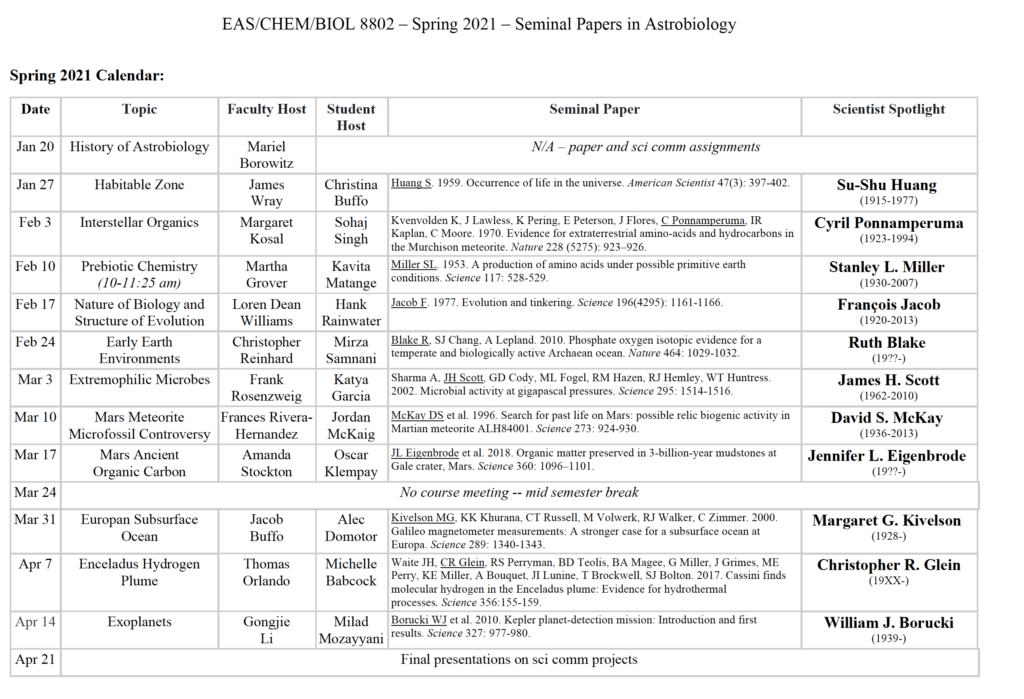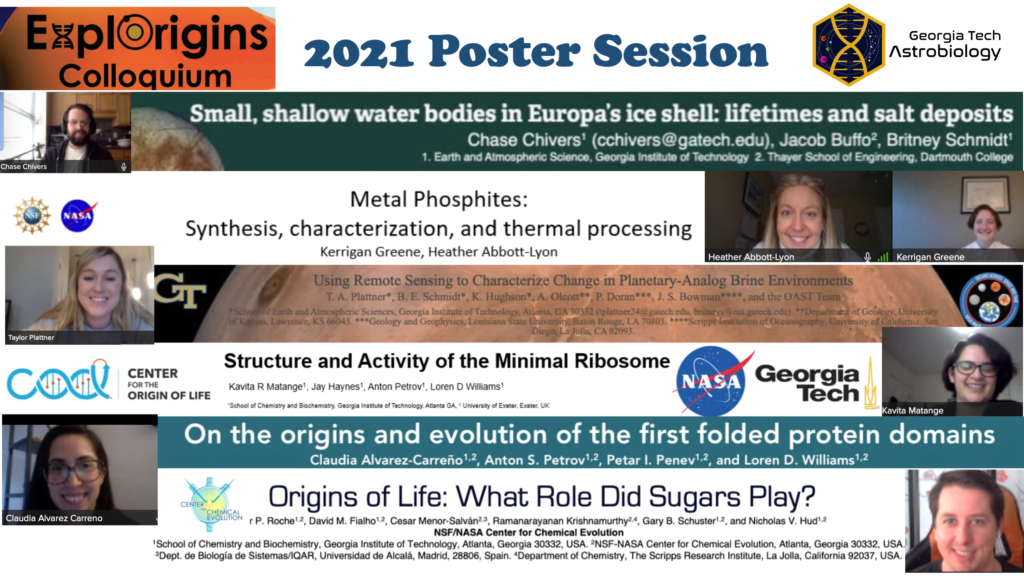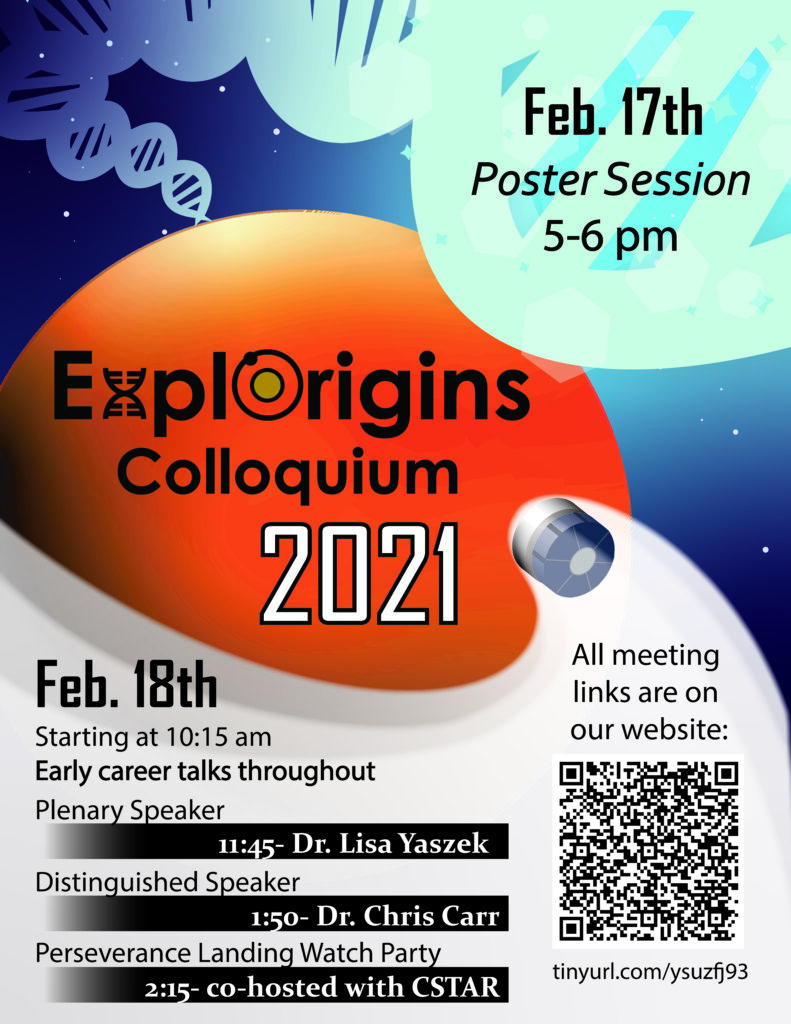PSAS: How to be a Space Science Advocate
Funding for space science is overwhelmingly provided by government—a product of public policy. Scientists have the ability and the opportunity to participate in the process of setting public policy through both direct and indirect means, such as supporting lobbying efforts by professional scientific organizations. The Planetary Society, a rare example of an independent pro-space nonprofit, actively engages in the process of policy development, working to support space science and exploration investment by the U.S. government. This talk will discuss why space policy is important and how future scientists can be effective space advocates for themselves and their field,
Casey Dreier,
Chief Advocate & Senior Space Policy Adviser The Planetary Society
PSAS: Mars Landing Panel
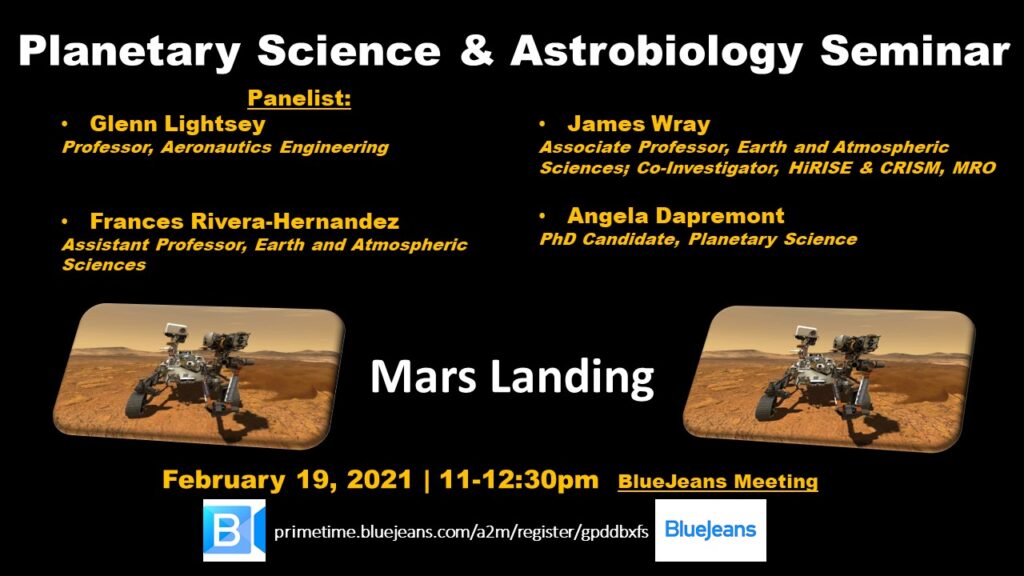
Panelist:
- Glenn Lightsey, Professor, Aeronautics Engineering
- Frances Rivera-Hernandez, Assistant Professor, Earth and Atmospheric Sciences
- James Wray, Associate Professor, Earth and Atmospheric Sciences; Co-Investigator, HiRISE & CRISM, MRO
- Angela Dapremont, PhD Candidate, Planetary Science
Explorigins Colloquium Detailed Schedule
Space Science Week @Tech is here! Join the festivities for the Perseverance Landing!
Welcome to Space Science week at Georgia Tech! Georgia Tech’s Center for Space Tecnology and Research and the ExplOrigins team–our GT Early career Astrobiology community–are teaming up to bring you a fantastic week of events and information about the Red Planet, and the history and exploration of our solar system. We’re excited to showcase some of the exciting work being done here at Tech, and help celebrate the landing of NASA’s Perseverance Rover on Mars this Thursday!
Each day, we’ll send out some Mars Minutes to help you get informed and excited for the big events this Wednesday through Friday. The schedule follows below.
Today’s Mars Minute is a rundown of the Mars 2020 mission and the Perseverance Rove
Every two years, the orbits are right to send a mission to Mars. With the Mars 2020 mission, the goal is to start the ambitious Mars Sample Return program. The Mars 2020 Perseverance Rover will search for signs of ancient microbial life, which will advance NASA’s quest to explore the past habitability of Mars. The rover has a drill to collect core samples of Martian rock and soil, then store them in sealed tubes for pickup by a future mission that would ferry them back to Earth for detailed analysis. Perseverance will also test technologies to help pave the way for future human exploration of Mars. Strapped to the rover’s belly for the journey to Mars is a technology demonstration — the Mars Helicopter, Ingenuity, may achieve a “Wright Brothers moment “ by testing the first powered flight on the Red Planet.
Check out the Mars 2020 Mission Trailer here:https://mars.nasa.gov/resources/25473/perseverance-arrives-at-mars-feb-18-2021-mission-trailer/
Check out details here:
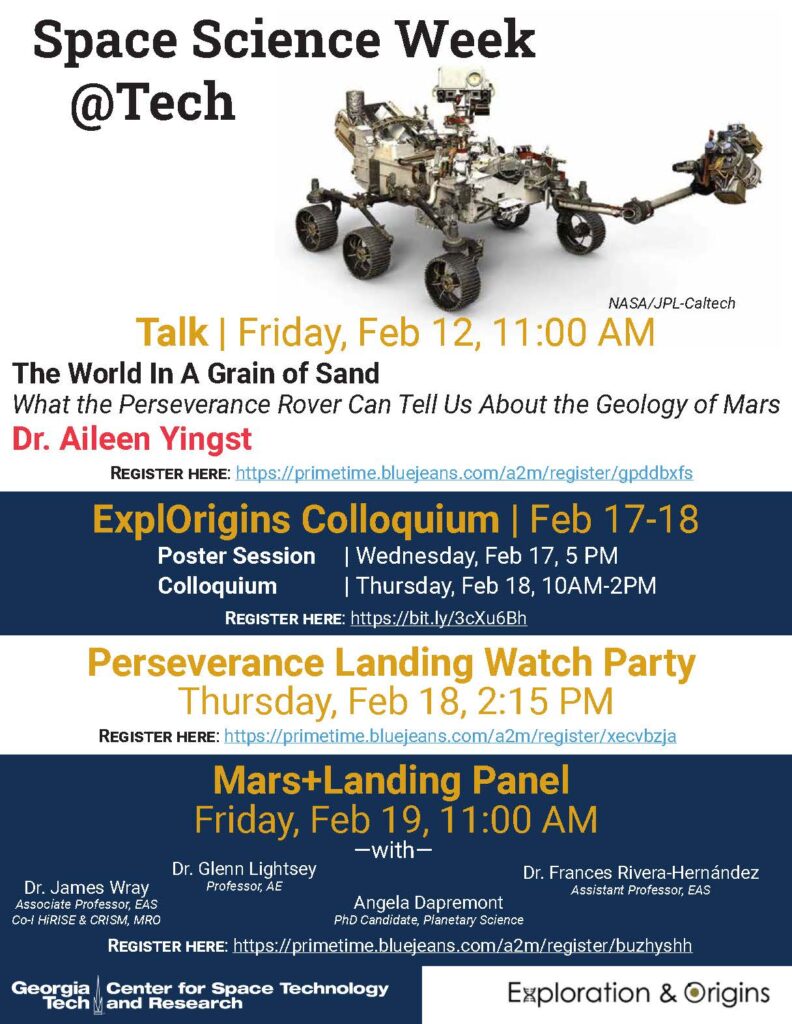
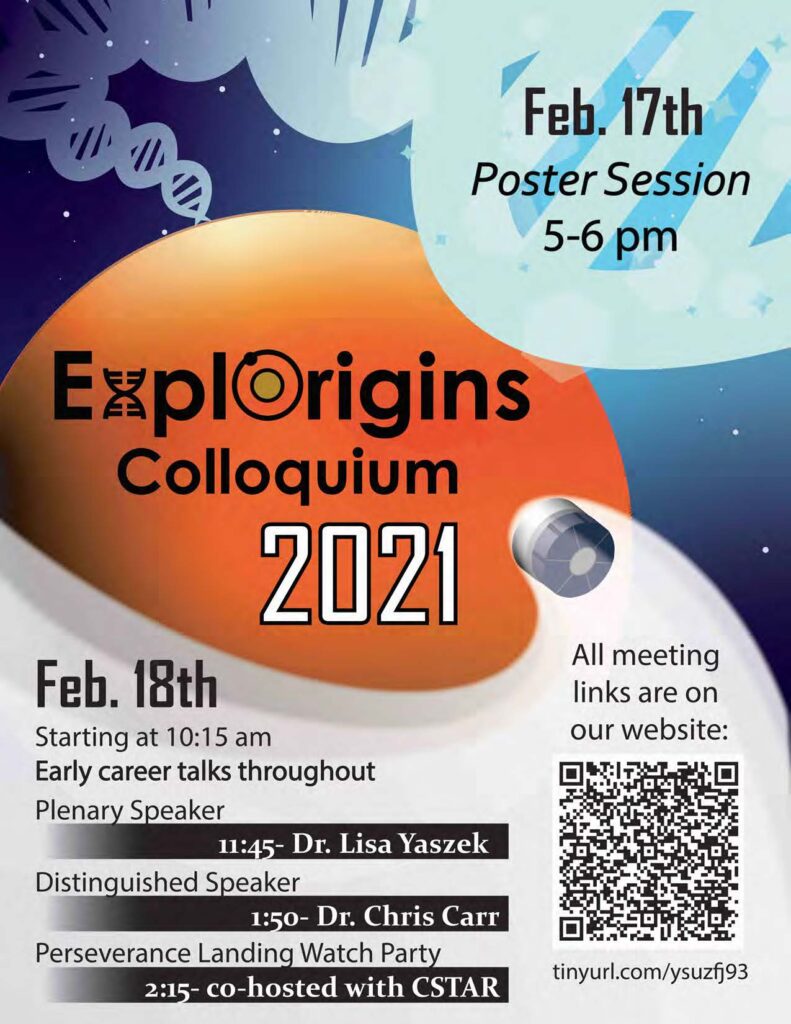
PSAS: The World in a Grain of Sand: What the Perseverance Rover Can Tell Us About the Geology of Mars
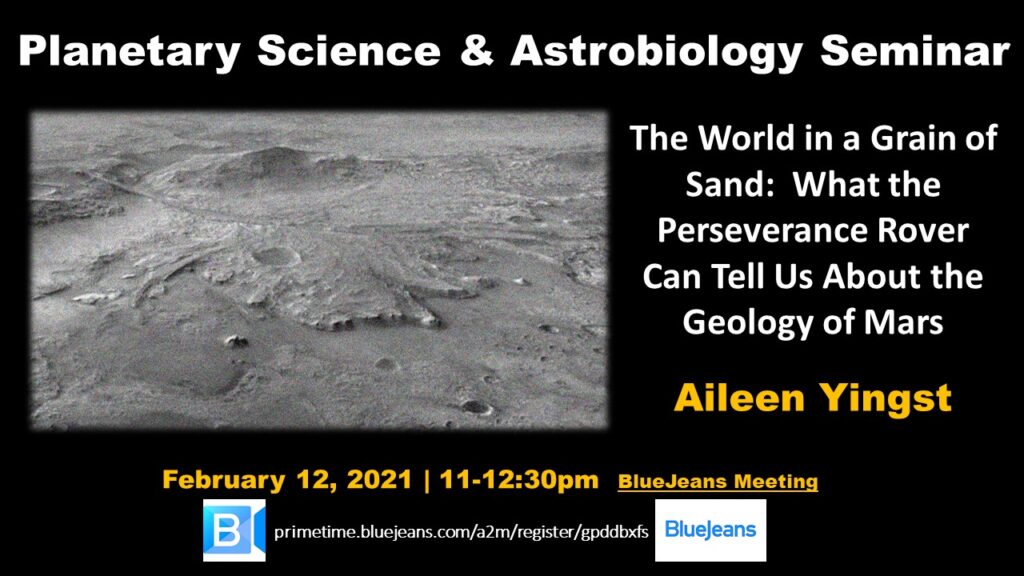
The talk will provide an overview of the Mars 2020 mission and the Perseverance rover with a particular focus on what grains can tell us about geology of Mars.
Picture description: Oblique view of Jezero crater, landing site of Perseverance
PSAS: Thinking Anthropologically about Astrobiology
The exploration of outer space, and specifically, the astrobiological search for evidence of life, is an endeavor and a science that is made powerful because of its multidisciplinarity. From the NASA HQ archives to the Atacama Desert to (working from home) at NASA Ames to countless conferences, I have had the phenomenal opportunity to see science in action and the creative and critical ways in which scientists engage with the fundamental questions posed by astrobiology. For this talk, I will share stories and data from my ongoing dissertation research in anthropology, outlining the methodological strategies I employ and demonstrating the insights I draw from ethnographic encounters. Based on this, I will share a few lessons learned from over a year of fieldwork and some preliminary conclusions.
PSAS: The Challenges Faced by Ice Dwelling Organisms and Implications for Astrobiology
Seminal Papers in Astrobiology Spring 2021 Schedule
Spring 2021 Seminal Papers in Astrobiology schedule is now finalized! Guests, we welcome you to sit in on the presentations and discussions. Because this is a course with participation points given for students taking it for a grade, guests are asked to please reserve questions/comments until the end of the discussion period. Course meetings are Wednesdays 9:30-11:25 am Eastern on Blue Jeans: https://gatech.bluejeans.com/891027890
